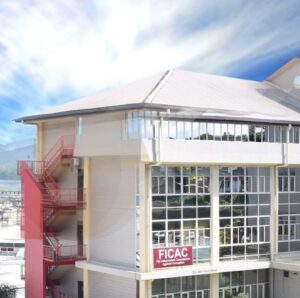Fiji’s Attorney General and Minister for Justice Siromi Turaga acknowledges FICAC’s strength in combating corruption in the country but says plans to review the institution are still being pursued in light of concerns about its perceived politicisation.
Turaga made the comments on the sidelines of the inaugural Pacific Anti-Corruption Regional Conference held at the InterContinental this week, hosted by FICAC. Commissioner Rashmi Aslam was among the presenters who spoke at the conference highlighting FICAC’s conviction rate of 80.9% for cases tried in court between April 2007 and December 2022, along with the legal framework, including sections six and 36 of UNCAC and section 115 of the 2013 Constitution, which empower and establish the institution’s existence.
Aslam said that he could not provide an exact dollar figure for the amount of money saved through FICAC’s work but was confident that it exceeded one million dollars. One notable case involved employees from the accounts section of the Public Works Department before its decommissioning in 2008. FICAC’s investigation revealed that this group, between March 2010 and August 2010, manipulated the department’s software management system, resulting in over 100 false transactions for stationery purchases, totaling approximately half a million dollars. They were convicted and subsequently jailed. During their investigation, FICAC also discovered “loopholes and weaknesses” in the PWD’s software management system which was rectified before the case was presented in court in 2013.
“I need not reiterate the importance of having a specialised body in fighting corruption,” Aslam said. “If I may bring a different analogy on the same cases because there are more than one or two accused in one case, the conviction rate by an accused person is 80.3%. This is the way the conviction rate remains for the last 15 years – an average.”
Earlier this year, Transparency International and Integrity Fiji called on the Fiji Coalition Government to reconsider its plans to disband FICAC, and instead strengthen FICAC’s independence and capacity to fight corruption. TI attributed Fiji’s higher Corruption Perceptions Index score – of 53 out of 100 – compared to other PICs to the work done by FICAC. They argue that Fiji, being one of the few nations in the Pacific with a national anti-corruption agency, should be seen as a positive example to be strengthened and expanded upon, rather than reversing the progress made so far.
Nevertheless, Turaga says whilst the institution is “strong in many areas” relating to combating corruption, the government is also mindful of concerns that FICAC had been used by the previous administration to target certain persons and groups which it has strongly refuted.
FICAC faced strong criticism before the 2022 General Election, mainly from parties in the current Coalition Government, which included plans to disband the agency within their first 100 days in office. The parties claimed that FICAC was politicised, and influenced by political interests since its establishment as part of former Prime Minister Voreqe Bainimarama’s 2006 military coup ‘clean-up campaign’. One of the early figures taken to court by FICAC was the late Prime Minister Laisenia Qarase.
During the lead-up to the 2018 Election, Prime Minister Sitiveni Rabuka, while leading SODELPA, was charged twice by FICAC. He was acquitted of one charge and FICAC discontinued the proceedings for the other. In 2020, Rabuka filed a complaint with FICAC regarding the awarding of a consultancy contract without due process, but FICAC ruled it had no merit.
Four years later, in the run-up to the 2022 Election, several People’s Alliance party members, including Rabuka and his deputies, were summoned by FICAC based on complaints largely made by the FijiFirst party. Leaders from other parties, like the Fiji Labour Party (FLP) and Unity Fiji Mahendra Chaudhry and Savenaca Narube respectively, were also referred to FICAC and raised concerns about bias in handling complaints. The concerns included allegations of unauthorised payments to members of the Electoral Commission, which FICAC initially dismissed but later gained attention when the Fiji Elections Office lodged a similar complaint in 2023.
The review which will shape the future of FICAC is unlikely to be completed this year. Turaga says that they carefully assess the situation before determining the next steps. Meanwhile, the government has decided to abolish the special court for corruption cases, allowing them to be heard before any judge.









